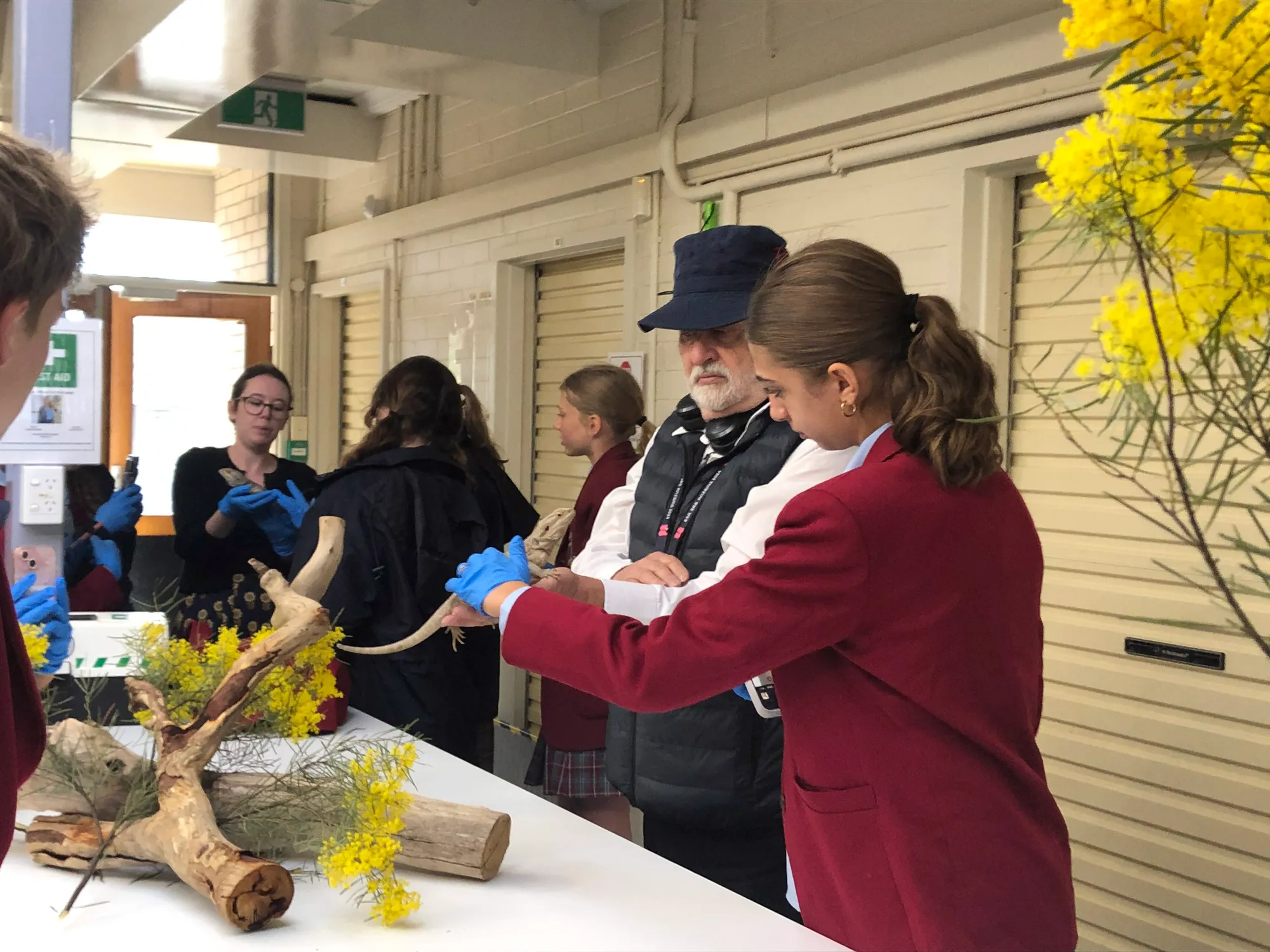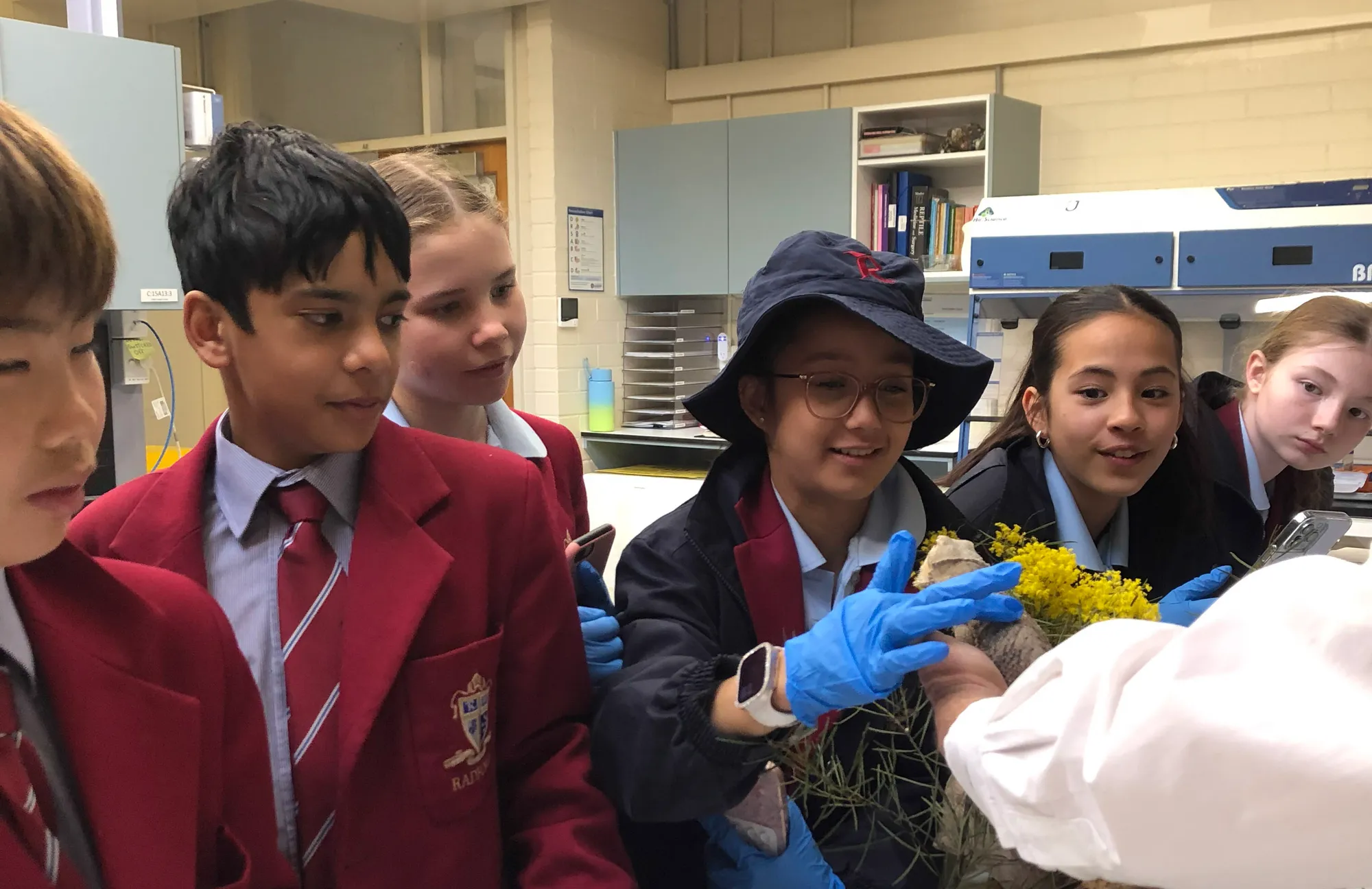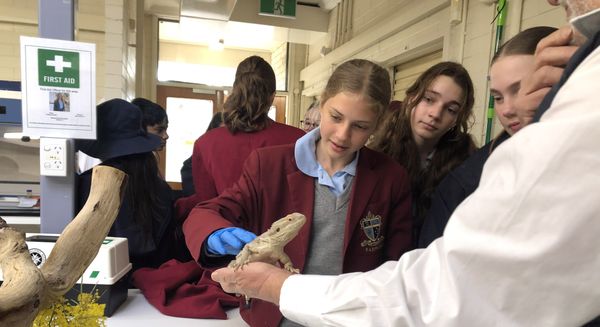Hands-on experience with dragon lizards
Hands-on experience with dragon lizards
Ms Stephanie Comino, Assistant Head of Science
Our Year 7 Science students had an extraordinary opportunity to visit the Environmental Research Precinct at the University of Canberra, where they explored the fascinating world of dragon lizard research. Under the guidance of Distinguished Professor Arthur Georges, Dr Sarah Whiteley, and animal care specialist Chelsea Steele, students gained firsthand experience with a colony of approximately 180 dragon lizards housed in the facility. The visit provided students with valuable insights into the lizard’s biology and unique characteristics that make these creatures ideal subjects for scientific study.
During the visit, students found out more about the genetic research performed at the University of Canberra concerning the determination of the gender of the lizards prior to hatching. Dragon lizards pass on chromosomes from parent to offspring just like us, but unlike us, the mother’s chromosomes determine whether the offspring will be male or female.

Amazingly, when eggs are incubated at higher temperatures, chromosomally male embryos can develop into females instead. This temperature-dependent sex determination has significant implications for wild populations and offers a fascinating window into developmental biology. The students were also able to learn about the challenges and responsibilities of maintaining a healthy lizard colony for research purposes.
The highlight of the excursion was the hands-on experience with the dragon lizards. Under supervision, students had the opportunity to handle these remarkable creatures, while learning about their behaviour, habitat requirements, and role in scientific research. Dragon lizards, which can live for up to 15 years, are known for their calm demeanour when handled by humans. I won't be surprised if some of the students ask for a dragon lizard as a pet! Luckily, the Canberra Reptile Zoo offers retired research lizards for sale along with the essential care, knowledge and equipment needed to help them thrive in a home environment.

We were incredibly lucky to be invited to visit the research facility, and would like to express our gratitude to the staff for the experience. The visit not only enhanced students' understanding of our current unit of study, but also provided exposure to applications of scientific research and potential career paths in biological sciences. The enthusiasm and engagement demonstrated by our students throughout the visit reflected their genuine interest in real-world science and their appreciation for this learning experience.
